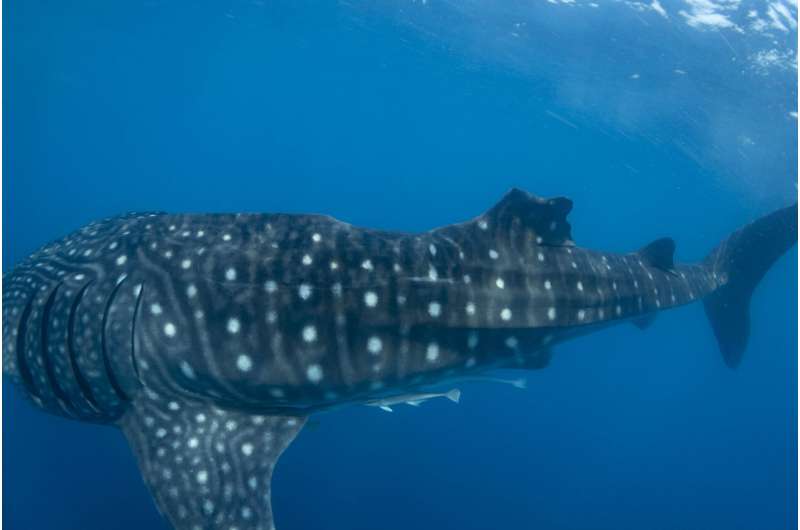Researchers from the University of Southampton and the Marine Biological Association (MBA) have discovered that global warming could significantly increase the risk of whale sharks colliding with large ships. Their study, published in Nature Climate Change, predicts a 15,000-fold increase in the co-occurrence of whale sharks and shipping traffic by the end of the century. This alarming finding highlights the need for proactive measures to protect this endangered ocean giant.

Climate Change Reshuffles Whale Shark Habitats
Studies suggest ocean warming will push whale sharks into new waters, with many of these migration routes intersecting busy shipping lanes. To predict the future distribution of this iconic species, researchers used whale shark satellite-tracking data and global climate models.
According to their results, core whale shark habitats may decrease by more than 50% in the EEZs of several nations by 2100 if high-emission scenarios are realized. Asia will face the greatest potential losses—species there are predicted to travel far enough to avoid extinction. In addition, on a continent as parts of Europe, certain areas would win core habitat under sustainable development scenarios ensuring global warming well below 2°C.
Increased Risk of Ship Strikes
The researchers concluded that by adding the forecasted migrations of whale sharks against maps of shipping traffic density, these species could locate themselves in more frequented areas than they have before, making the chances for a ship strike much higher. The volume of whale sharks and shipping lanes that are likely to co-occur for some representative regions: (a) U.S. North Pacific Ocean, (b) Japan Eastern China Seas, and (c) Sierra Leonian North Atlantic Ocean ).
Preferentially avoiding high-traffic shipping lanes running through the heart of Gulf waters, should result in fewer co-occurrences in some regions previously used by whale sharks on the Mexican side of the gulf (Figure 5; see S9 for more discussion).
Mitigating the Impacts of Climate Change on Whale Sharks
Their analysis concluded that the increase in thermocline strength was three times greater than a co-occurring rise in whale shark tropical abundance and 1·5 times higher than recent estimates of warming seawaters for species at risk (e.g. marine mammal extinctions). The researchers caution that even though the trend overall warrants concern, our actions to tackle climate change can push both it and its impacts further out.
Co-author and Senior Research Fellow in the Faculty of Biological Sciences, Dr David Sims says: ‘The shifts we predict are expected to be less extreme if we can slow down warming and reduce climate change, which implies that even complex, multi-factor impacts of climate change can be partially dampened by our efforts.
It is of importance to include climate change in endangered species management discussions, because otherwise, these indirect impacts of a warming planet will have devastating consequences for the likes of highly mobile marine species like the whale shark. With proactive steps like modifying shipping lanes or instituting speed limits in areas of high-density whale shark traffic, the danger of these fatal impacts could be further mitigated and permit this astonishing oceanic behemoth to adapt to a changing world.
